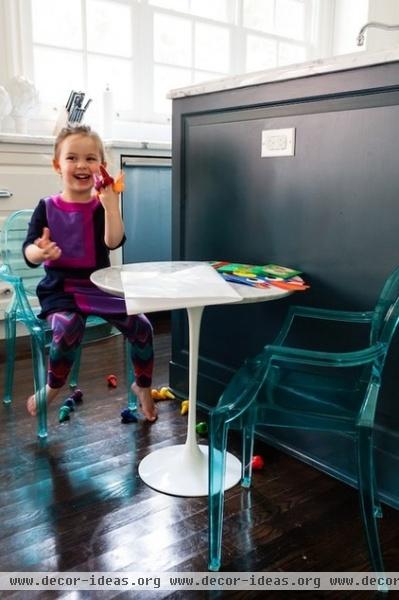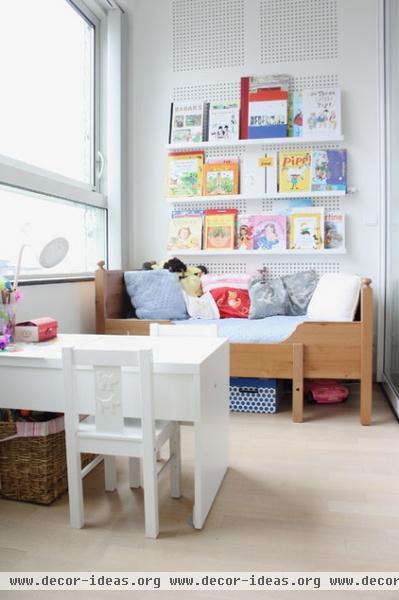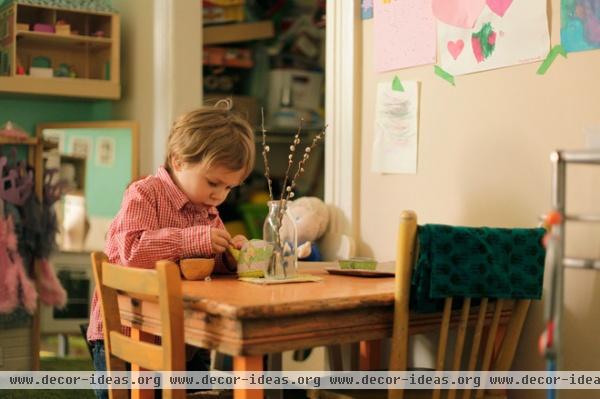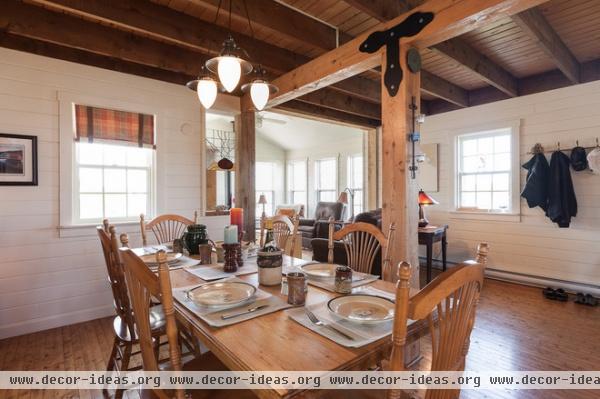Modern Manners: Smooth Moves for Kids' Visits
Whether you are a parent who does an annual visit to a stuffy relative's house where your kids aren't allowed to touch anything, or you're child free but have friends coming to visit with kids in tow, you have probably felt the panic. Will something get broken? Will I be horribly embarrassed? Will we ever get another invitation?
From manners gone awry to broken vases, picky eaters and more, it's true that visiting with kids poses plenty of challenges. It helps to see this as an opportunity to instill good manners that your child will have for life. And it doesn't have to be painful in the least. In fact, with a little thought and preparation, hosting kids can be great fun. Find some pointers here, then feel free to chime in with your own tips and tales in the Comments section.

Before the Visit
Parents: Talk to your hosts ahead of time if you plan to bring your children, even if you think they are expected. If it's a party, it's generally best to assume kids are not invited unless the hosts say otherwise. If you want to bring your child, call the host and say something like, "We would love to come; I can't remember the last time we got out — but we don't have any child care for Susie. Maybe next time? Keep us on your list!" This leaves an opening for your host to invite you to bring your child, without any pressure to do so.
Review basic manners with your child in advance of the visit, and plant to offer gentle reminders during your stay. Don't stress out about your kids having "perfect" behavior, though. (News flash: No kids are perfect.) As long as you are all making your best effort, consider that good enough.

Hosts: Be honest about whether your guests' kids are welcome in advance. It may be initially uncomfortable to tell your friend, but it's better than caving and then spending the entire visit uncomfortable. If you are unsure about what to say, try something like, "I love getting to see the boys at our holiday brunch, but this would not be fun for them. I'm so sorry for any inconvenience."
As far as home prep goes, even though it is the parents' responsibility to watch kids, you would be wise to move fragile and priceless objects out of reach ahead of time. There's no need to go overboard, but making at least one room fairly child friendly will be much appreciated by the parents and kids — and you can all relax a little more, which is definitely a good thing.

What to Bring
Parents, when your hosts have kids: If your hosts have children, bringing a small gift for the kids is a thoughtful gesture (though by no means necessary). Think inexpensive book, puzzle or art supplies.
Parents, when your hosts don't have kids: If you are visiting a nonkid household, pack along a big goody bag filled with things you know your kids will enjoy doing. If you have fussy eaters, pack along some easy snacks to offer if dinner does not go over well. In fact, if you do have a fussy eater, it's polite to tell your hosts in advance that your little guy won't eat anything but white foods or whatever and that you've got it covered, so they don't go out of their way to whip up a fabulous kid-friendly meal only to have the little dude turn up his nose at it.
If you are an overnight guest, be sure to pack anything that will make your child feel more at home, from the nightlight in her room to that favorite teddy bear and pajama set.

Pet Concerns
Everyone: No matter how small and sweet the furry friend is, and no matter how much junior usually loves pets (or how much Fido loves kids), do not be surprised when problems arise. Kids get afraid, and animals get overexcited and scared, and that is not a good combo.
Parents: Prep your kids in advance by talking about the kind of pets your host has, and how to properly (and safely) greet a pet for the first time. If your child has severe allergies, the safest bet is to avoid visiting homes with pets your child is allergic to. If the allergies are mild, talk to your hosts in advance — most people don't mind keeping their pets in another room or outside for a short visit.
Pet owners: Plan to keep your dog outside or right by your side, at least at first. Let everyone get comfortable, and then do a carefully supervised meet-and-greet, if desired. If you have friends coming over for the first time, be sure to let them know what kind of pets you have, in case anyone is allergic.

Childproofing and Accidents
Parents: It's your duty to make sure your kids follow house rules, and to generally watch what your wee ones are doing the entire time they are in another person's home. If your aunt Linda has tons of highly breakable decor at kid level, you have a few options: Watch your kids like a hawk, ask if Linda minds if you put a few things on higher shelves temporarily, or escape to the yard or a local park to get some energy out.
If your child does break or damage something, come clean immediately — it is your duty to pay for the repairs or replacement. If it was a very expensive accident, and you cannot afford to pay for it outright, offer to pay for it in increments. Your hosts may understand and be able and willing give you a break ... or they may feel that they can't let you off the hook, so be prepared for either outcome. And of course, older kids can (and should) pitch in by helping to pay for damages out of their allowance or savings account.

Keeping Little Hands Busy
Parents: As mentioned previously, bringing a tote bag filled with toys and games is always a smart move. Also consider getting your kids involved in the dinner prep: Kids can help make a centerpiece or place cards, or set the table — even little ones can set out napkins.
Hosts: Do you need to come up with a schedule of events worthy of Mary Poppins? Of course not. Your guests, if they are prepared (see above) will surely bring some toys and games. But keep in mind that the more absorbed little ones are in positive play, the less likely they are to be whining, running around wildly or breaking things. Picking up a big roll of paper and some washable markers or watercolors and stickers and having kids decorate their own tablecloth makes for an easy and inexpensive creative activity. A stack of kid-friendly videos could also come in handy later in the evening.

Mealtime
Parents: Remind kids in a soft but clear voice about basic manners (napkin in lap, say "please" and "thank you" etc.) as needed. If your child is having a really tough time or being outright rude, quietly take him or her out of the room and have your talk there — not at the table.
Hosts: If you have a group of kids at dinner, putting them at a kids' table can work well for everyone. If you are not used to having kids around the dinner table, the noise and activity level can take some getting used to. Try to roll with it as best you can — pour yourself a glass of wine and turn up the dinner music, if that helps. If a child is being extremely disruptive, it is perfectly all right to say something to the parent, though it is best to frame your remark in a positive way, like: "It looks like Charlie is really having a hard time sitting still. Is there something I can do to help him feel more comfortable?"

Tell us: What have you found most challenging about visiting with kids, either as a parent or as the host? Any helpful tips to share? Please share your tales in the Comments.












